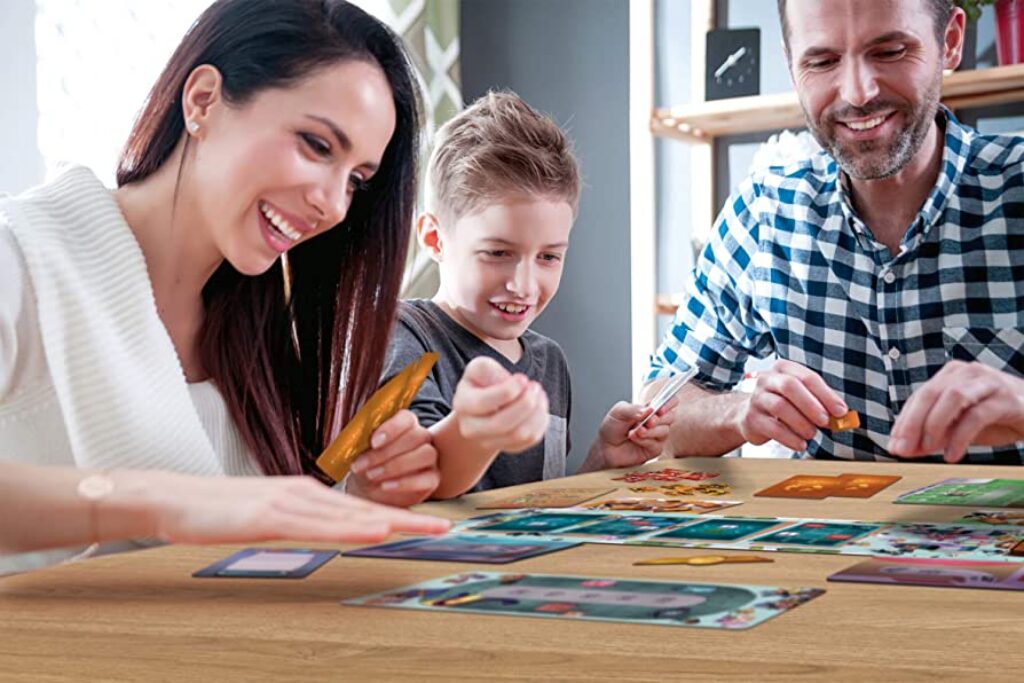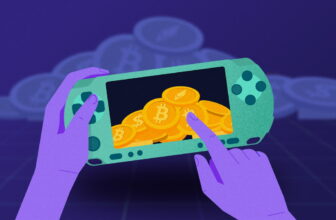
Children are fond of playing because of many things. It can be because it allows them to interact with others, or they find the thrill of competition irresistible. Whatever their motivation is, games help kiddos develop their well-being, including their cognitive skills, to a certain degree.
Studies show that games can enhance a child’s critical thinking and decision-making, allowing them to understand more complex knowledge about their environment. Further, it’s believed that playing games let younglings nurture their imagination, making them more creative.
That said, as a parent, consider supporting your child’s playtime by introducing games that can catch their fancy and improve their cognitive skills. Need game ideas? Check out the following:
Table of Contents
Combining A Jigsaw Puzzle
John Spilsbury, a British cartographer, invented the jigsaw puzzle in 1762. They intended to help schoolchildren in their area with their geography classes, so they printed one of their maps out of wood and cut it, featuring different countries. Since then, jigsaw puzzles have become one of the most recommended educational tools for children.
If you’re looking for a game that can entertain your little plum while allowing them to learn new things like animals, places, and so on, combining a jigsaw puzzle is your match made in heaven. You can find many types of jigsaw puzzles today. Some retain classic rectangular features, especially maps, while others are shaped like the figure behind the pieces, which can be an adorable penguin or a public figure. Visit here to know your best options.
A jigsaw puzzle allows your child’s mind to giggle with curiosity as they discover the figure behind the pieces they must combine. Aside from this, your child will enjoy the game even better if they play with their peers and loved ones. The activity will train them to learn more about teamwork aside from sharing quality time with them. That said, consider inviting your child’s playmates inside your home and share a story about the figure they discover after they combine the puzzle.
Chess
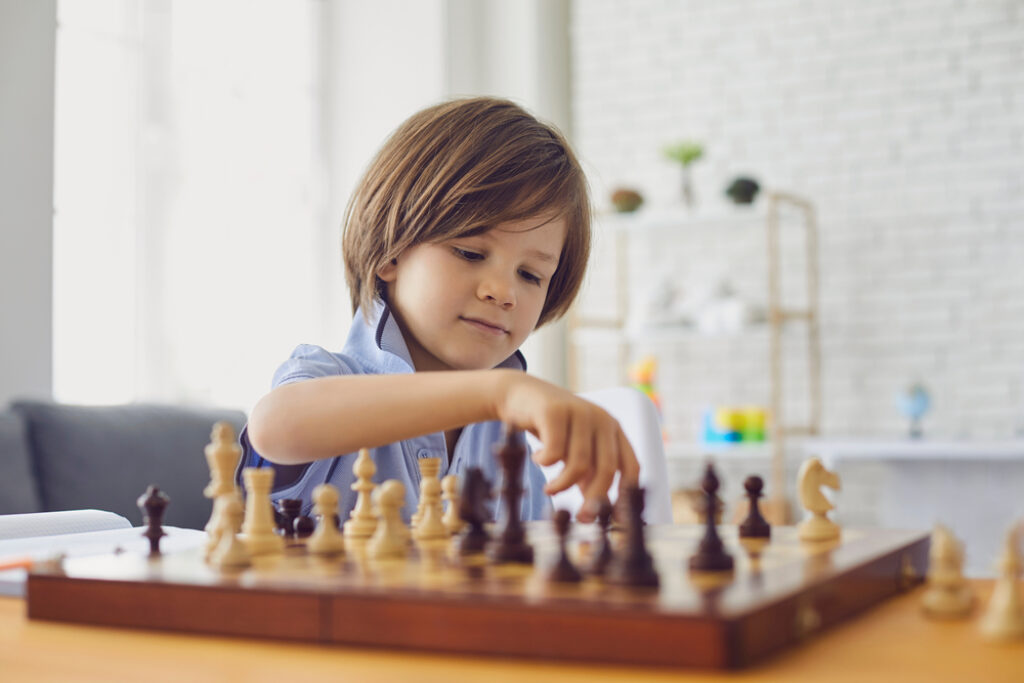
Source: kidsacademy.mobi
Chess is one of the most iconic strategy board games worldwide, first appearing around the 6th BC in India. A chess game has 32 pieces: 16 for white and 16 for black. Each side consists of eight pawns, two bishops, two knights, two rooks, a queen, and a king. The game’s main objective is to ‘checkmate’ the enemy king.
The game of chess is a highly recommended game for young children because it’s a board game that inspires critical thinking among its players. Behind the pieces a player moves, many variations exist, and one wrong turn can cost them the game. Aside from this, studies show that the game improves chess players’ memory and math skills, making them remember detailed information and logic.
Introducing chess puzzles featuring scenarios like a ‘smothered mate,’ a tactical series of moves, mating the enemy king, can make your child’s chess experience even more entertaining. To spice things up, let them solve each while under time pressure!
Scrabble
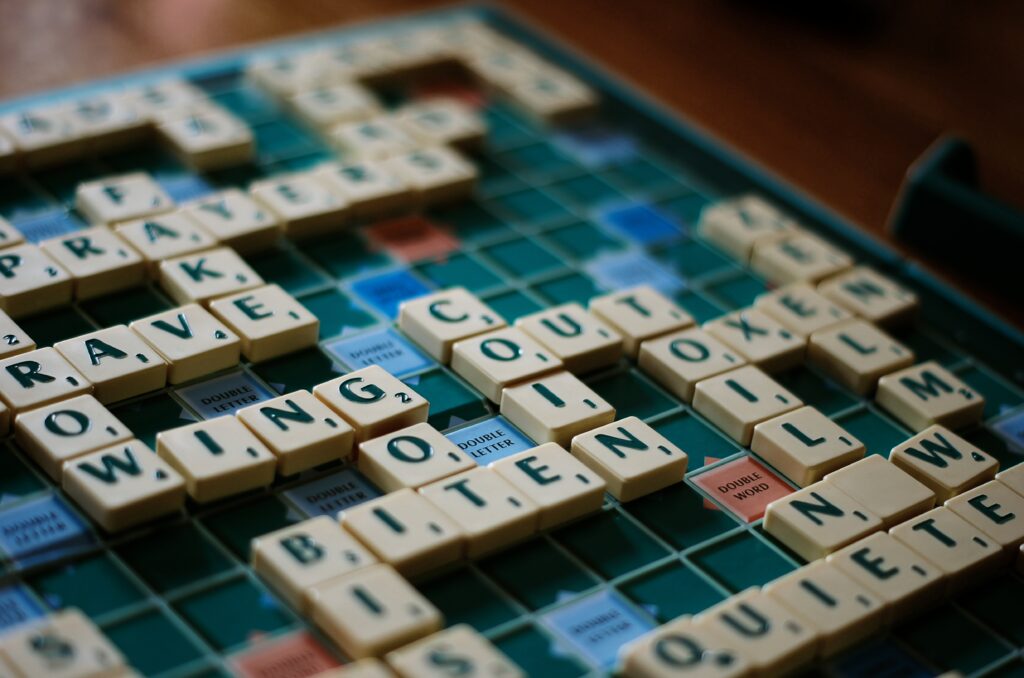
Source: en.wikipedia.org
Scrabble is a board game originally designed by Alfred Mosher Butts in 1931. It was then named Lexico, a shorter word for Lexicon, which stands for ‘a person’s vocabulary,’ and played without a board. In 1948, James Brunot copyrighted the game and named it ‘Scrabble’ which means ‘to rushly write.’
The board game Scrabble is recommended for young kids because it revolves around words a player can put on the board to earn points. The player that scores the most points wins the game, and one must have a vast vocabulary to become victorious in word building games like Scrabble.
Vocabulary games like Scrabble can encourage your child to read the dictionary for new words more often. You can make your little champ’s learning process more fruitful by showing pictures behind the words they read because it can help them understand unfamiliar terms even better.
Spot The Difference
Spot The Difference is a game with straightforward rules. It’s a game recommended for children because such activities allow them to improve their observation skills, which one can obtain with a concentration on detail. The player needs to see the difference between the two illustrations presented to them by either their opponent or a facilitator.
To make the game more entertaining, play Spot The Difference with your toddler under time pressure and inform them that you’ll reward them if they win. After all, positive reinforcement is always an excellent means to encourage learning.
Rubiks Cube
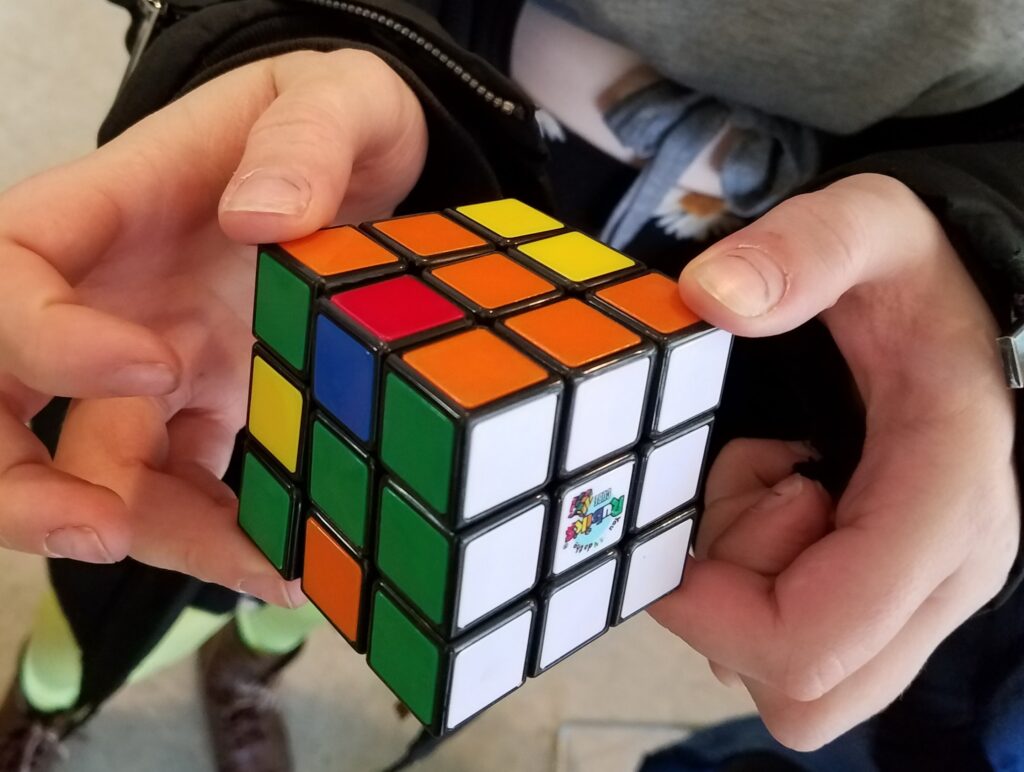
Source: edutopia.org
Problems in life are inevitable for everyone, even for children. And for their young senses, facing them can be overwhelming. As it may be, they need to understand that they can solve such hardships with patience and a collected mind.
Letting them use the Rubiks Cube is one way to help them achieve excellent problem-solving skills. The cube, invented by Ernő Rubik in 1974, features six faces with different colors: white, yellow, green, blue, red, and orange. The main objective of playing the cube is to place the correct colors in the right area by shuffling cube parts.
It may appear too complicated to solve, but one can quickly solve the Rubik’s cube with concentration and an understanding of its patterns. In fact, the world record for solving a 3x3x3 Rubiks Cube is around three seconds only, done by Yusheng Du.
Treasure Hunt

Source: qad.com
Pirates, secrets, and treasures are among the most classic imaginations that many young kids wish to unravel – and the thrill of adventure alone may not let them fall asleep after you read them their bedtime story. In that case, why not make it a reality and start a treasure hunt with your sweet peas?
A treasure hunt is a terrific game for aspiring explorers, including children, because it allows the players to enhance their decision-making and observation skills as they track clues from bushes, artifacts, and maps. With that said, gather your mini crew after setting up an exciting treasure hunt activity, which you can do so even in your backyard!
Conclusion
Children may be unruly while playing, but such activities help them improve their well-being, including their cognitive skills. Such benefits can help them grow as a better person. Consider using the mind stimulating games featured in this post to support your child’s playtime.

